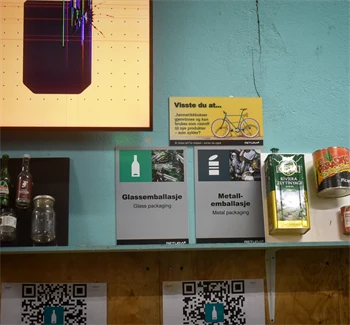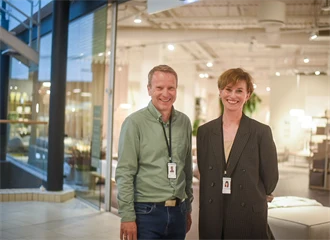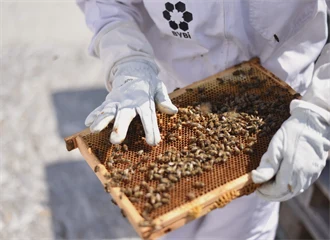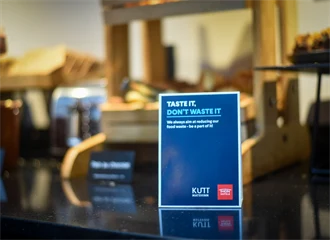The Thon Group aims for 70 percent circularity
"We are a large group that generates a lot of waste. Circularity is important for utilising and recycling as much waste as we can. This makes us more sustainable," says Kjetil Moen, operations director in the Thon Group.
Waste sorting efforts were further strengthened when the group presented a sustainability strategy with the goal of becoming 70 percent circular by 2030 in 2022.
Since a large percentage of the Thon Group's activities consists of hotels, shopping centres and other commercial operations, it is not the group itself that produces the most waste, but tenants, customers, guests and suppliers.
To increase awareness and sharpen focus on sorting, several of the the Thon Group's shopping centres have entered into agreements with companies specialising in waste management.
Technology company Carrot simplifies waste sorting
One of the companies is Carrot, a technology company that makes it easy to register waste using an app or smart compressors. This provides the shopping centre operations manager with data on how much and what is discarded and by whom.
A complete waste overview makes it easier to inspire tenants to sort waste instead of throwing everything in the residual waste bin.
"In addition to wanting to increase their sustainability efforts, lots of shops and eateries have internal reporting requirements. Carrot makes it easier to succeed in both," says Sivert André Belsby from Carrot.
He is responsible for helping customers get started with the solution and follows up on shopping centre operations managers.
"Lots of operations managers in the the Thon Group's are good at using the data they collect with Carrot and want to move in a more sustainable direction," explains Siver.
Successful start
The first shopping centre in the Thon Group that tested the Carrot agreement was Vestkanten Storsenter in Bergen. During the pilot period, the average sorting percentage at the centre increased from 54 to 65.5 percent.
Vestkanten StorsenterNow even the trash room looks fresh
A centre with a high waste sorting percentage is Ski Storsenter.
To the operations manager of the centre, Ole Sørlie, waste management has become a sport over the years. The Carrot agreement has improved things even further.
"We see that people are motivated to report their waste levels in the app," says Ole.
In the centres trash room, the walls are painted with the international colour codes for waste sorting.
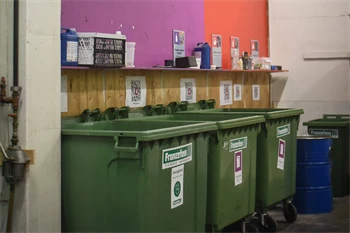
There are bins for different types of electronic waste, glass, porcelain, metal, wood, cardboard and paper, and different types of plastic. In the corner is a box for textiles for the Red Cross. An adjacent room has two huge compressors for residual waste.
Even though there are many categories to monitor, it sometimes happens that things are put in the wrong bin. Ole has put signs above each bin with examples of items that can be thrown into the different bins. He has even glued a broken coffee mug over the porcelain bin.
But there are still those who do not sort their waste.
"Many tenants are good at sorting because they have waste that is easy to sort. Clothing shops, for example, often have only plastic and cardboard, and the occasional banana peel. The tenants that struggle more with waste are the food service establishments where guests don't bother to sort," explains Ole.
Why you should sort your waste
Did you know that every person in Norway produced 387 kg of waste i 2022 – in their own homes alone? It matters if you remember to throw that empty meat packaging in the right bin.
Source: Statistics Norway
Waste sorting is about maintaining focus
Operations director Kjetil concurs with Ole. But he has noticed that the sorting percentage at shopping centres with a Carrot agreement increases, but tends to stagnate after a certain amount of time.
"This shows that waste management is something we have to work on continuously and that an agreement alone is not enough. Focus needs to be maintained and the centres need to continue to work on awareness," he concludes.
Contributors
- KM Kjetil Moen Director of Operations - Property Services
-

- SB Sivert André Belsby Customer Success Manager in Carrot
